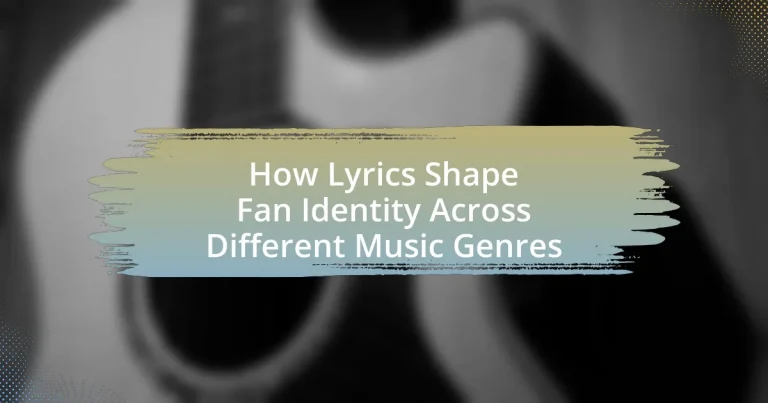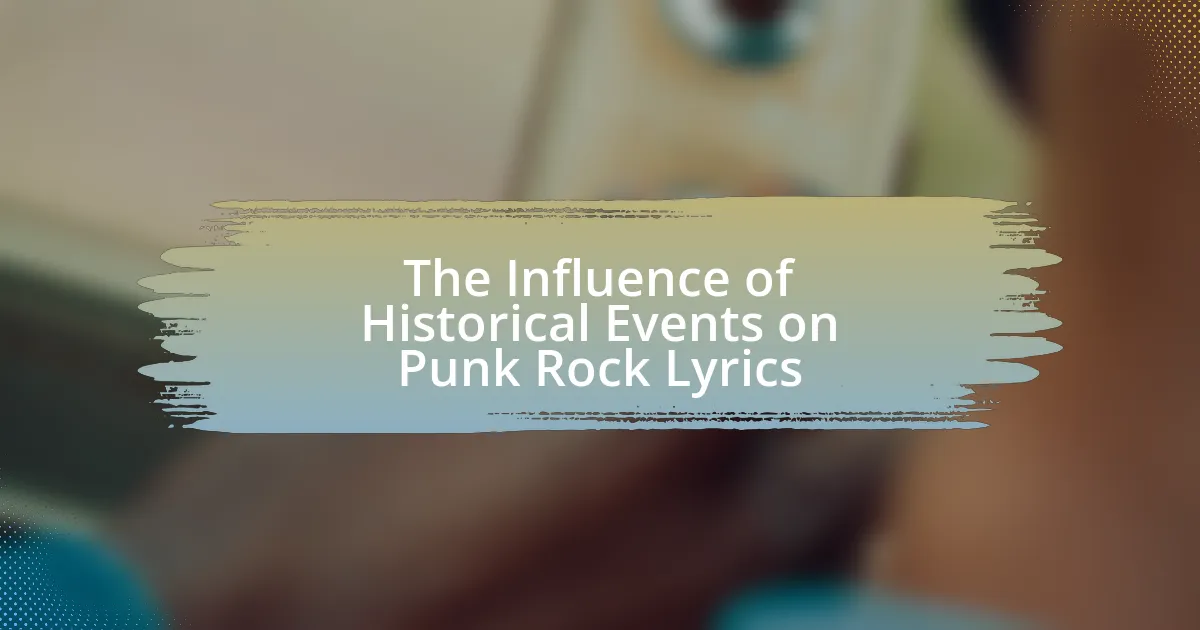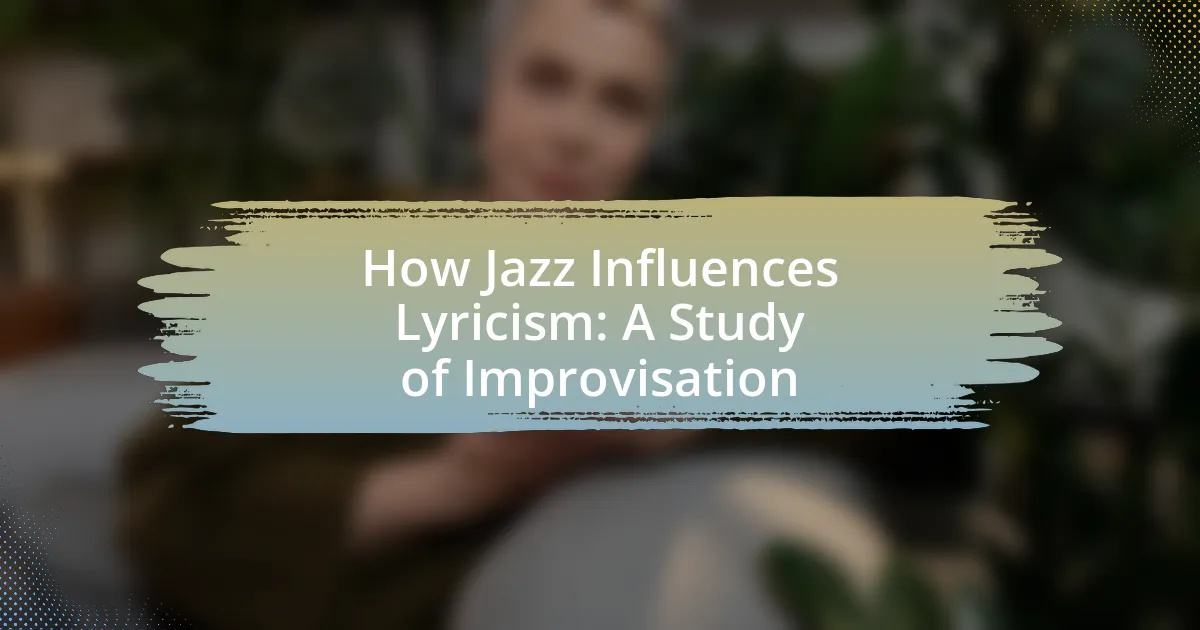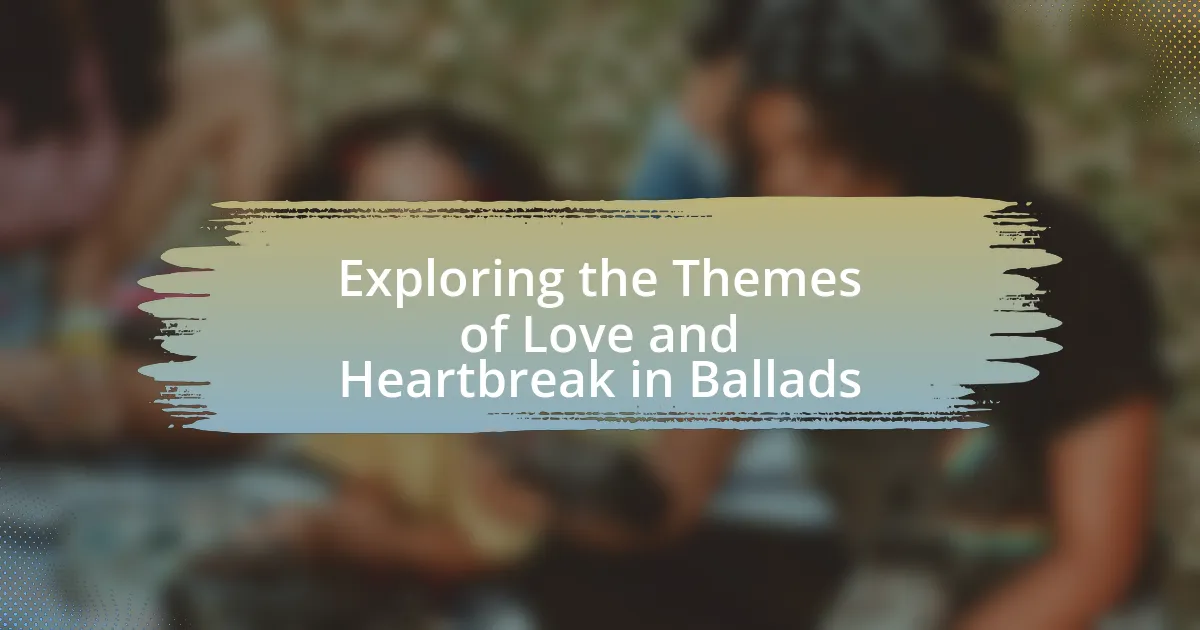The article examines how lyrics shape fan identity across various music genres, highlighting the significant role lyrics play in fostering community and emotional connections among listeners. It discusses how specific themes in lyrics resonate with different demographics, influencing fan behavior and engagement. The article also explores the psychological effects of lyrics on identity formation, the cultural implications of lyrical content, and the impact of digital platforms and social media on lyrical interpretation and dissemination. Additionally, it addresses how evolving lyrical themes reflect shifts in fan identity and the practical strategies fans can employ to deepen their connection with music.
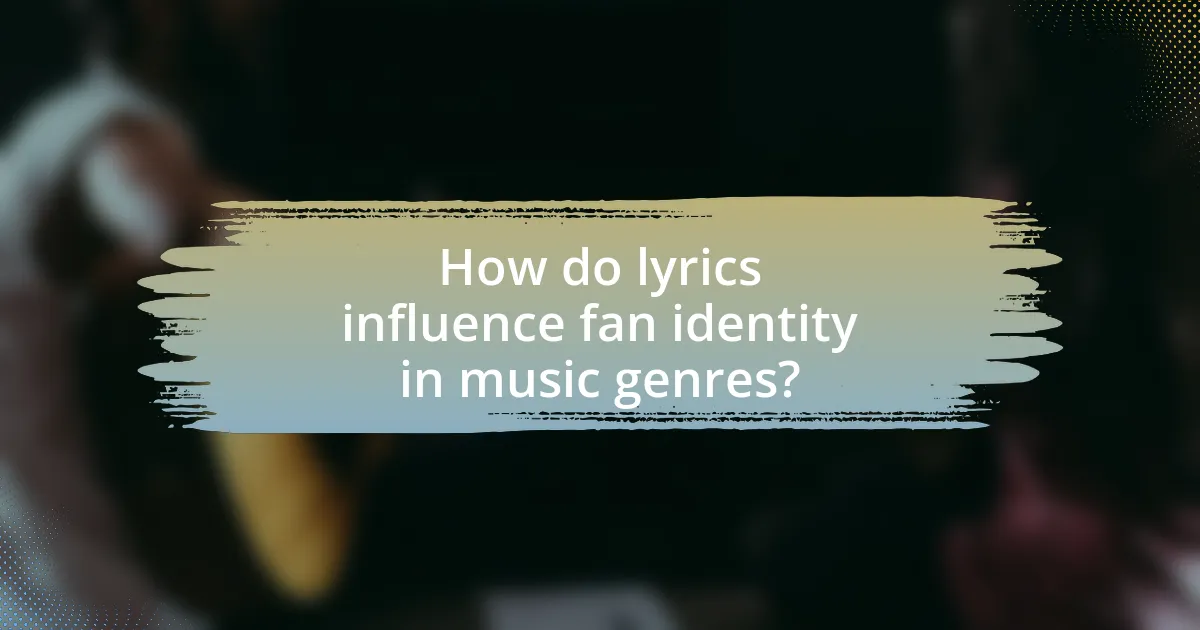
How do lyrics influence fan identity in music genres?
Lyrics significantly influence fan identity in music genres by providing a shared language and emotional resonance that fosters community among listeners. Fans often identify with the themes, narratives, and emotions expressed in lyrics, which can reflect their personal experiences and values. For instance, in genres like hip-hop, lyrics often address social issues, identity, and empowerment, allowing fans to connect deeply with the music and each other, as seen in the rise of movements like Black Lives Matter, where artists like Kendrick Lamar articulate shared struggles. Similarly, in punk rock, lyrics that challenge societal norms resonate with fans seeking rebellion and authenticity, creating a distinct subculture. This connection between lyrics and fan identity is supported by studies showing that music with relatable lyrics enhances listeners’ sense of belonging and self-identity, reinforcing their affiliation with specific genres.
What role do lyrics play in shaping emotional connections with fans?
Lyrics play a crucial role in shaping emotional connections with fans by articulating shared experiences and feelings. Through storytelling and relatable themes, lyrics resonate with listeners, fostering a sense of belonging and understanding. For instance, studies show that fans often identify with the emotions expressed in songs, which can lead to increased loyalty and attachment to the artist. This connection is particularly evident in genres like hip-hop and country, where personal narratives and life struggles are frequently highlighted, allowing fans to see their own lives reflected in the music.
How do specific themes in lyrics resonate with different fan demographics?
Specific themes in lyrics resonate with different fan demographics by reflecting the values, experiences, and emotions relevant to those groups. For instance, themes of empowerment and resilience in pop music often attract younger audiences seeking identity and self-expression, while themes of nostalgia and storytelling in country music resonate with older demographics who value tradition and personal narratives. Research indicates that fans often identify with lyrics that mirror their life experiences; a study by the University of Southern California found that listeners are more likely to connect with songs that address their social and cultural contexts. This connection fosters a sense of belonging and community among fans, reinforcing their identity within specific music genres.
What psychological effects do lyrics have on fan identity formation?
Lyrics significantly influence fan identity formation by providing a framework for self-expression and belonging. Fans often identify with the themes, emotions, and narratives presented in lyrics, which can resonate with their personal experiences and values. This connection fosters a sense of community among fans who share similar interpretations and emotional responses to the music. Research indicates that music lyrics can evoke strong emotional reactions, which in turn can reinforce group identity and individual self-concept. For example, a study published in the Journal of Personality and Social Psychology by Rentfrow et al. (2011) found that individuals often align their identities with the music they consume, suggesting that lyrics play a crucial role in shaping how fans perceive themselves and their affiliations with specific music genres.
How do different music genres utilize lyrics to build community?
Different music genres utilize lyrics to build community by expressing shared experiences, values, and emotions that resonate with specific audiences. For instance, hip-hop often addresses social justice issues, fostering a sense of solidarity among listeners who relate to themes of struggle and resilience. This genre’s lyrics frequently reflect the realities of marginalized communities, creating a collective identity among fans who find empowerment in these narratives.
Similarly, country music often emphasizes themes of family, love, and rural life, which resonate with listeners who identify with these values, thereby strengthening community ties. The storytelling aspect of country lyrics invites fans to share personal experiences, reinforcing a sense of belonging.
In contrast, punk rock lyrics often convey anti-establishment sentiments, uniting fans through a shared rejection of societal norms. This genre’s emphasis on rebellion and authenticity fosters a tight-knit community among listeners who value individuality and resistance.
Overall, the specific themes and narratives within the lyrics of various genres serve as a catalyst for community building, allowing fans to connect over shared identities and experiences.
What are the unique lyrical characteristics of various music genres?
Various music genres exhibit unique lyrical characteristics that reflect their cultural contexts and thematic focuses. For instance, hip-hop often emphasizes storytelling, social commentary, and personal experiences, utilizing intricate rhyme schemes and wordplay to convey messages about identity and struggle. In contrast, country music frequently centers on narratives of love, heartbreak, and rural life, employing straightforward language and relatable themes to connect with listeners.
Rock music typically explores themes of rebellion, love, and existential angst, often using metaphorical language and emotional intensity to resonate with its audience. Pop music, on the other hand, tends to focus on catchy hooks and universal themes of love and relationships, utilizing repetitive structures and accessible language to appeal to a broad audience.
Additionally, genres like reggae emphasize social justice and spirituality, often incorporating political messages and cultural references into their lyrics. Each genre’s lyrical characteristics not only define its sound but also shape the identities of its fans, creating a sense of belonging through shared themes and experiences.
How do genre-specific lyrics foster a sense of belonging among fans?
Genre-specific lyrics foster a sense of belonging among fans by reflecting shared experiences, values, and emotions that resonate within a particular community. These lyrics often address themes relevant to the fans’ lives, such as love, struggle, or cultural identity, creating a collective identity among listeners. For instance, hip-hop lyrics frequently discuss social issues and personal narratives that resonate with marginalized communities, fostering solidarity and a sense of shared purpose. Research indicates that fans who identify with the themes in lyrics are more likely to engage with the music and form connections with other fans, reinforcing their belonging to that genre’s community.
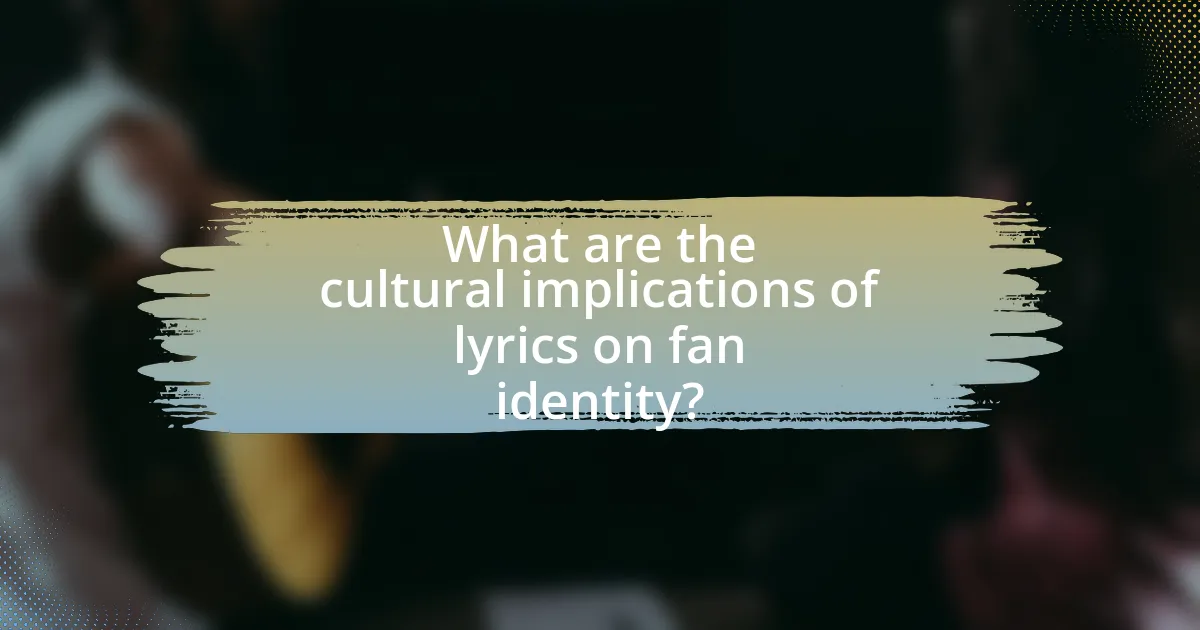
What are the cultural implications of lyrics on fan identity?
Lyrics significantly influence fan identity by shaping cultural narratives and personal connections to music. Fans often identify with the themes, emotions, and stories conveyed in lyrics, which can reflect their own experiences and values. For example, research indicates that fans of hip-hop often resonate with lyrics that discuss social issues, identity, and resilience, fostering a sense of community and shared experience among listeners. This connection can lead to the formation of subcultures, as seen in the punk genre, where lyrics often challenge societal norms and empower fans to express their individuality. Furthermore, studies show that lyrics can serve as a form of social commentary, influencing fans’ perspectives on cultural and political issues, thereby reinforcing their identity within a broader societal context.
How do lyrics reflect societal issues and influence fan perspectives?
Lyrics reflect societal issues by addressing themes such as inequality, violence, and mental health, which resonate with listeners and shape their perspectives. For instance, songs like “Fight the Power” by Public Enemy highlight racial injustice, prompting fans to engage in social activism. Research indicates that music with socially conscious lyrics can enhance awareness and empathy among listeners, influencing their views on critical issues. A study published in the Journal of Popular Music Studies found that fans often identify with the struggles depicted in lyrics, leading to a stronger sense of community and shared identity among listeners who relate to those societal challenges.
What examples exist of lyrics addressing social justice themes?
Examples of lyrics addressing social justice themes include “Fight the Power” by Public Enemy, which critiques systemic racism and advocates for empowerment within marginalized communities. Another example is “Alright” by Kendrick Lamar, which expresses hope and resilience in the face of police brutality and racial injustice. Additionally, “Same Love” by Macklemore & Ryan Lewis addresses LGBTQ+ rights and challenges homophobia. These songs not only highlight social issues but also resonate with listeners, shaping their identities and fostering a sense of community around shared values and struggles.
How do fans interpret lyrics in the context of their cultural backgrounds?
Fans interpret lyrics through the lens of their cultural backgrounds, which influences their emotional responses and meanings assigned to the songs. Cultural elements such as language, traditions, social norms, and historical experiences shape how fans relate to the themes and narratives presented in the lyrics. For instance, a song addressing social justice may resonate differently with fans from marginalized communities compared to those from more privileged backgrounds, as the former may see their lived experiences reflected in the lyrics. Research by the University of California, Berkeley, indicates that cultural context significantly affects music perception, highlighting that fans often draw on their unique cultural narratives to derive personal meaning from lyrics. This interplay between lyrics and cultural identity reinforces the connection fans feel to the music and the artists, ultimately shaping their fan identity across various music genres.
What impact do lyrics have on fan behavior and engagement?
Lyrics significantly influence fan behavior and engagement by shaping emotional connections and fostering community among listeners. Fans often resonate with the themes and messages in lyrics, which can lead to increased loyalty and participation in fan activities, such as attending concerts or engaging on social media. For instance, a study published in the Journal of Popular Music Studies found that lyrics addressing personal struggles or social issues can create a sense of belonging and identity among fans, enhancing their overall engagement with the artist and their music. This connection is particularly evident in genres like hip-hop and punk, where lyrics often reflect the lived experiences of fans, driving them to form supportive communities around shared values and emotions.
How do lyrics inspire fan activism or participation in movements?
Lyrics inspire fan activism and participation in movements by conveying powerful messages that resonate with listeners’ beliefs and emotions. For instance, songs like “Fight the Power” by Public Enemy have historically motivated fans to engage in social justice initiatives, reflecting the struggles against racial inequality. The emotional connection established through lyrics can mobilize fans, as seen in the rise of movements like Black Lives Matter, where music serves as a rallying cry. Additionally, studies indicate that music with socially conscious lyrics can increase awareness and inspire collective action, demonstrating the significant role of lyrics in shaping fan identity and activism across various music genres.
What role do lyrics play in the creation of fan art and content?
Lyrics serve as a primary source of inspiration for the creation of fan art and content. Fans often interpret and visualize the themes, emotions, and narratives expressed in lyrics, translating them into various artistic forms such as illustrations, videos, and written content. For instance, a study published in the Journal of Popular Music Studies highlights that fans frequently draw from specific lines or verses that resonate with their personal experiences, thereby fostering a deeper connection to the music and the artist. This process not only enhances fan engagement but also contributes to the broader cultural landscape by allowing fans to express their identities through the lens of the music they love.
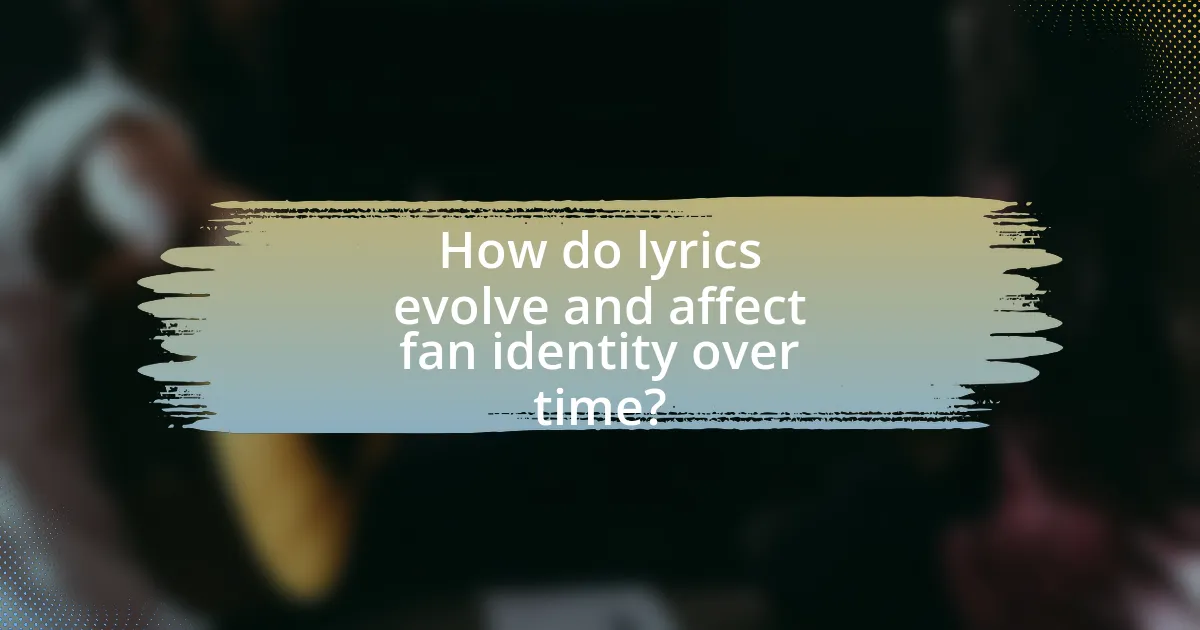
How do lyrics evolve and affect fan identity over time?
Lyrics evolve by reflecting cultural, social, and personal changes, which in turn shape fan identity over time. As artists respond to societal issues, personal experiences, and shifts in musical styles, their lyrics often resonate with fans who identify with these themes. For instance, the evolution of hip-hop lyrics from party-centric themes in the 1980s to socially conscious narratives in the 1990s illustrates how fans’ identities shifted from mere enjoyment of music to engagement with social justice issues. This transformation is supported by studies such as “The Role of Music in Identity Formation” by Tia DeNora, which highlights how music and lyrics serve as tools for self-expression and community belonging. As fans connect with evolving lyrics, they often redefine their identities in relation to the messages conveyed, leading to a dynamic interplay between music and personal or collective identity.
What trends can be observed in lyrical content across decades?
Lyrical content trends across decades reveal a shift from simple themes of love and relationships in the 1950s and 1960s to more complex social and political issues in the 1970s and 1980s, and then to personal identity and mental health in the 1990s and 2000s. In the 1950s, artists like Elvis Presley focused on romance, while the 1960s introduced protest songs, exemplified by Bob Dylan’s “The Times They Are a-Changin’.” The 1970s and 1980s saw the rise of hip-hop, with artists like Public Enemy addressing systemic racism and social injustice. By the 1990s, grunge and alternative rock artists like Nirvana began exploring themes of alienation and mental health, leading to a more introspective lyrical style in the 2000s with artists like Eminem and Billie Eilish discussing personal struggles. This evolution reflects broader societal changes and the increasing complexity of individual and collective identities in music.
How do changes in lyrical themes reflect shifts in fan identity?
Changes in lyrical themes reflect shifts in fan identity by mirroring the evolving values, beliefs, and experiences of the audience. For instance, as societal issues such as mental health awareness and social justice gain prominence, artists often incorporate these themes into their lyrics, which resonates with fans who identify with these movements. A notable example is the rise of hip-hop artists addressing systemic racism and personal struggles, leading to a more politically conscious fan base. This alignment between lyrical content and fan identity fosters a sense of community and belonging among listeners, as they find validation and representation in the music that reflects their own lives and challenges.
What are the implications of digital platforms on lyrical engagement?
Digital platforms significantly enhance lyrical engagement by providing immediate access to song lyrics and facilitating interaction among fans. These platforms, such as streaming services and social media, allow users to share, annotate, and discuss lyrics, fostering a deeper connection to the music and the artists. For instance, a study by the Pew Research Center found that 72% of teens use social media to engage with music, indicating that digital platforms play a crucial role in how fans relate to lyrics and express their identities through them. This engagement not only amplifies the emotional resonance of the lyrics but also cultivates a sense of community among fans who share similar interpretations and experiences related to the music.
How do streaming services influence the way fans interact with lyrics?
Streaming services significantly influence how fans interact with lyrics by providing immediate access to song lyrics alongside streaming content. This accessibility allows fans to engage with lyrics in real-time, enhancing their understanding and emotional connection to the music. For instance, platforms like Spotify and Apple Music often feature integrated lyrics displays, enabling listeners to follow along as they listen, which fosters a deeper appreciation for the songwriting and lyrical themes. Additionally, the social sharing features of these services encourage fans to discuss and share their interpretations of lyrics, further enriching their interaction with the music. Research indicates that this real-time engagement can lead to increased fan loyalty and a stronger sense of community among listeners who share similar interpretations and experiences related to the lyrics.
What role do social media play in the dissemination and interpretation of lyrics?
Social media plays a crucial role in the dissemination and interpretation of lyrics by providing platforms for rapid sharing and discussion among fans. These platforms enable users to share song lyrics instantly, facilitating widespread access and engagement. For instance, Twitter and Instagram allow fans to post snippets of lyrics, often accompanied by personal interpretations or emotional responses, which can influence how others perceive the meaning of those lyrics. Additionally, platforms like Genius allow users to annotate lyrics, offering insights and interpretations that can shape collective understanding. Research indicates that social media interactions can significantly impact fan identity, as fans often align themselves with specific interpretations that resonate with their personal experiences, thereby reinforcing their connection to particular music genres.
What practical strategies can fans use to deepen their connection with lyrics?
Fans can deepen their connection with lyrics by actively engaging in lyric analysis and interpretation. This involves listening to songs multiple times, reading the lyrics while listening, and reflecting on the themes and emotions conveyed. Engaging with online communities or forums dedicated to discussing song meanings can also enhance understanding, as fans share insights and personal interpretations. Additionally, attending live performances allows fans to experience the emotional delivery of lyrics firsthand, further solidifying their connection. Research indicates that active participation in music-related discussions can foster a sense of belonging and identity among fans, reinforcing their emotional ties to the lyrics and the artists.
